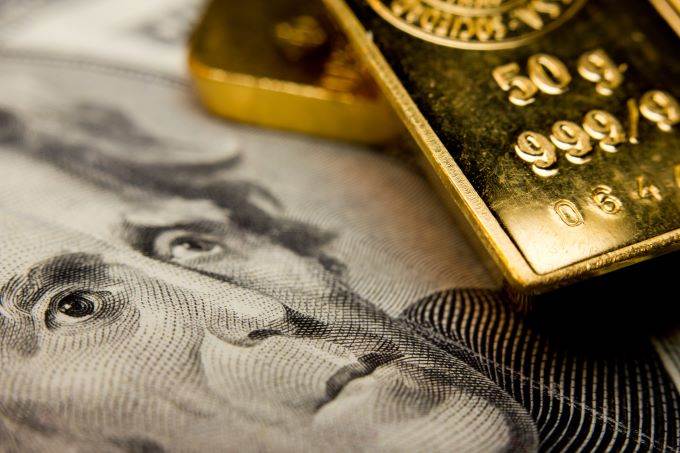 Last week, gold futures had the biggest weekly loss since September 2011, losing around 9.6 percent. It was followed by other metals, like silver, which lost around 18.44 percent and palladium, which went down by 33.74 percent.
Last week, gold futures had the biggest weekly loss since September 2011, losing around 9.6 percent. It was followed by other metals, like silver, which lost around 18.44 percent and palladium, which went down by 33.74 percent.
Investors are selling off gold, which is usually considered a safe-haven asset, presumably to cover margin calls, as the coronavirus outbreak has made market actors run out of global equities towards the US dollar, as there is currently a clear preference for liquidity. The illness, which appeared for the first time in China and is currently expanding to the rest of the world, has currently infected about 150,000 and has killed more than 5,000 around the world.
It seems that even U.S. President Donald Trump, who originally underestimated the possible impact of the outbreak in his country, now understands that this situation is quite serious. Last week the Federal Reserve intervened several times into the American markets, and on Friday Trump himself declared a national emergency and announced that the government was going to free up $50 billion in federal resources to combat the epidemic, which is currently affecting more than 2400 American residents and has killed more than 50 of them. The US government also decided to impose a travel ban on Europe (including Britain and Ireland) which is expected to go into effect on Monday.
"Through very collective action and shared sacrifice, national determination, we will overcome the threat of the virus," said Trump.
Just like its American counterpart, the European Central Bank also announced that it is intervening into the markets with a new round of cheap loans offers to the European banking sector, a relaxation of the rules for the banking system and a boost of the ECB asset purchasing program. Besides this, despite not doing it this time, it left the door open for further interest rate cuts.
However, tECB president Christine Lagarde refused to say that the bank would do whatever it takes to protect the Eurozone from a recession, which cast doubts over the Eurozone's members' capacity to stay together and goes against the precedent her predecessor Mario Draghi established. Instead, she called for coordinated fiscal actions, a call she has made several times in the past which helped to spread fear in the European markets. Later, she attempted to retract her statements during an interview with the CNBC.
“I am fully committed to avoiding any fragmentation in a difficult moment for the euro area," she said during a TV interview, "High spreads due to the coronavirus impair the transmission of monetary policy,” she added.
Now, the course of events remains uncertain, as the virus keeps spreading around the world and affecting the global economy. The chances for an economic recession are higher, but that doesn't mean it's necessarily going to hit in the near future. In any case, the effects on the economy will for sure last for at least a couple of months, as some analysts expect a rebound in the middle of the current year.
